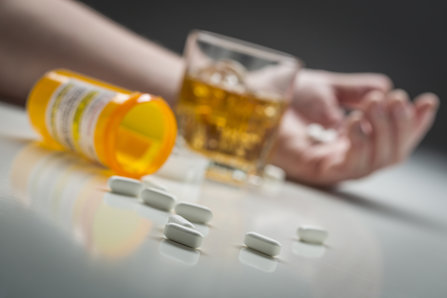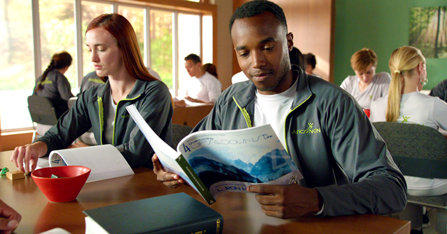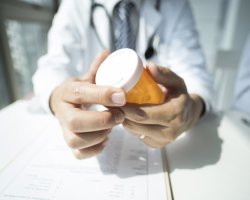Alcohol and Prescription Drugs Don’t Mix

It is estimated that about 18 million people misuse prescription drugs in the U.S. each year. About 5,480 people abuse such medications for the first time every day. Not all of those who misuse prescription drugs “just once” will become addicted to them. But many of them will.
Studies show that about 14 million people in the U.S. have a chronic, ongoing addiction to alcohol. About 88,000 people die from alcohol-related causes every year.
Though prescription drugs are legal, they can be extremely harmful when not used correctly. Sometimes, these substances can even be dangerous even when they are used correctly. And when alcohol and prescription drugs are used in tandem, the risk levels increase considerably.
Heavy Drinking and Prescription Drug Use on the Rise
Some research suggests that people who drink to excess are more likely to misuse benzodiazepines in tandem with their alcohol consumption. Drugs like Valium, Xanax, Klonopin, Ativan, and Restoril are used to treat anxiety. But when used together with alcohol, the risk for harmful side effects increases.
“… When benzodiazepines are consumed with alcohol, overdose can result from the impact of two central nervous system depressants.”
According to Dr. Matthew Hirschtritt, a clinical professor at the University of California, San Francisco, “Some physicians may be refilling prescriptions, unaware that their patients have unhealthy alcohol use. In many cases, patients have been taking benzodiazepines for years and believe them to be harmless. That’s a mistaken belief. When benzodiazepines are consumed with alcohol, overdose can result from the impact of two central nervous system depressants.”
And that’s what most people don’t understand. Alcohol is a depressant. Benzodiazepines are a depressant. The layperson might not realize it, but consuming two depressant drugs at once can have severe, even lethal consequences.
Unfortunately, according to the research, people with unhealthy drinking patterns were 15 percent more likely to use benzodiazepines together with alcohol consumption than moderate drinkers or non-drinkers.
How to Tell if Your Family Member or Loved One is Misusing Alcohol
Alcohol addiction is categorized by chronic alcohol use that results in physical, mental, emotional, or spiritual difficulties. It is drinking to the point where it becomes a problem. It is consuming alcohol to the point where it creates risk and harm in the individual’s life. It is drinking to the point where one is endangering himself or others, hurting the family, losing a job, ruining a career, getting into trouble with the law, having accidents, etc.
All of the above are signs of alcohol addiction. But there are other signs too, such as chronic drunkenness, health problems which stem from drinking, impaired coordination, poor memory, odd sleeping habits, empty alcohol bottles in the trash, frequent purchases of alcohol, drinking on a work or school night, etc. People who misuse alcohol may exhibit aggression, paranoia, depression, irritability, etc. They might display a lack of energy, seem to have a short attention span, appear lethargic, or exhibit a lack of motivation.
How to Tell if Your Family Member or Loved One Is Misusing Prescription Drugs

If you suspect that your family member or loved one is misusing, self-medicating, or experimenting with prescription drugs, one of the first things you must do is find out for sure if this is the case.
Thankfully, there are signs and indications of prescription drug addiction. These signs might manifest in behavioral ways, or they may show up as physical signs of misuse. The important thing for you to do is to learn what the symptoms are so that you can spot them.
Keep in mind that not all prescription drugs have the same effect on people. Someone who misuses opiate painkillers is going to exhibit entirely different phenomena than someone who is abusing an anti-anxiety medication.
A person who abuses opiate painkillers will not feel pain at normal levels. They may appear tired or confused. Their pupils might be constricted, and they may complain of nausea. They might be looking for remedies for constipation. They might have odd sleep patterns or eating habits.
A person who misuses prescription stimulants is likely to manifest anxiety, delusions, hysteria, and extreme nervousness. They may have flushed skin or complain of chest pain or heart palpitations. They might exhibit odd sleep patterns, usually with long hours spent awake before sleeping.
A person who is self-medicating on benzodiazepines may manifest drowsiness or dizziness. Confusion, blurred vision, weakness, slurred speech, lack of coordination, difficulty breathing, and even coma are also side effects.
Other signs to look for would be poor memory, slurred speech, poor coordination, headaches, and dizziness. Also, one should be watchful for abrupt emotional and behavioral changes, including depression, tiredness, aggression, paranoia, agitation, etc. Last but not least, people who misuse prescription drugs might become violent or even suicidal.
Just about all of the signs and symptoms of prescription drug abuse are exacerbated when alcohol misuse is added to the mix. The likelihood of an overdose or an accident of some kind increases drastically when one is misusing prescription drugs and alcohol together.
Getting Help for Your Loved One

Once you know for sure that your loved one is struggling with addiction, the critical task then becomes one of getting them into a residential drug treatment center. You should do your best to find a center that offers long-term care. When recovering addicts can stay in treatment longer, they’re able to address more of their issues, more of their toxic behaviors. They’re able to learn more, and they can get a lot more out of their programs. They have more time to heal and to develop healthy life skills and best practices for a drug-free life.
Prescription drug abuse is not a new issue, and it is also not just constrained to the United States. It has been an ongoing problem all across the globe for well over a century. However, recent medical advancements and newer, high-strength prescription drugs have brought on a whole new era of danger and risk. And when the pills of today are mixed with alcohol, the results are easily lethal. That’s why getting immediate help for a loved one is so important.
If at first, your loved one is unwilling to seek help at a residential drug treatment center, some degree of encouragement may be required. If that doesn’t work, it might be necessary to stage an intervention. That is best done with the help of a professional interventionist. Just remember, the presiding goal has to be doing whatever is necessary to get your loved one into treatment.
A drug problem cannot go on indefinitely, yet addiction does not go away on its own. When your loved one is misusing both prescription drugs and alcohol, they are amplifying their risk factors by experimenting with two mind-altering substances at the same time. If this is happening to your family member or someone you care about, make sure they get help today.
Sources:
- https://www.drugabuse.gov/publications/research-reports/misuse-prescription-drugs/what-scope-prescription-drug-misuse
- https://www.niaaa.nih.gov/publications/brochures-and-fact-sheets/alcohol-facts-and-statistics
- https://www.usnews.com/news/health-news/articles/2019-12-26/heavy-drinking-plus-xanax-valium-a-dangerous-mix
- https://www.ucsf.edu/news/2019/12/416196/problem-drinkers-have-higher-benzo-use-ucsf-kaiser-permanente-study-shows
- https://www.webmd.com/mental-health/addiction/benzodiazepine-abuse#2wed


 ®
®